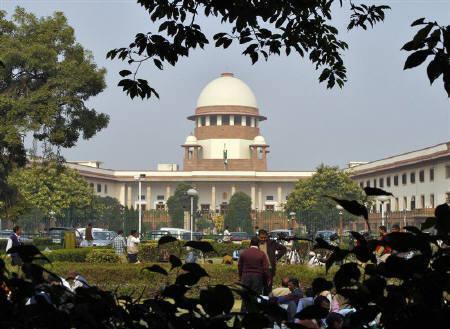
The overall implications of the judgement are not yet clear, but it is apparent from the information emerging so far that the government has been directed to begin the process of cancelling and reissuing the licences, which must conclude in four months.
The Court has also directed the sector regulator, the Telecom Regulatory Authority of India or Trai, to come up with a fresh set of recommendations within two months; the government should auction the licences and associated spectrum a month after that. The Court deserves to be complimented for its verdict and indeed for doing what the government should have done long ago.
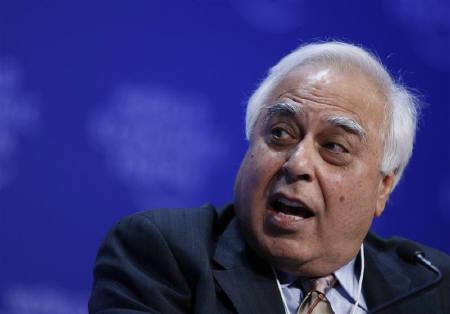
This decision is also welcome in that it reiterates the principle that auctions, and the price-discovery mechanism that they incorporate, should be the default method of allocating national resources such as spectrum.
The first-come, first-served principle for licensing, as the Court pointed out, is inherently discriminatory.
It is important for the government to take this judgment as an indication that it should move forward on cleaning up the telecom sector, which has been subject to the uncertainty brought on by accusations, policy incoherence and legal proceedings to do with licensing.
It is also an opportunity for Telecom Minister Kapil Sibal, who had earlier said that no revenue was lost in the 2G licence controversy, to earn for the government the revenue it should in fact receive.

The telecom sector has done well by the country in the past decade, pushing forward growth and connectivity.
It continues to need sensible regulation and support from government policy, as its role going forward is in no way diminished.
Broadband penetration continues to be a possible game-changer, and the subscriber base still has room to grow.
Through the reallocation of idle spectrum, and the consolidation of the industry that will inevitably follow, the sector should be strengthened - if the government and the regulator take the right decisions transparently on the basis of sound commercial principles, and bring this messy and unpleasant episode to a close.
There continue to be questions that will require regulatory intervention.
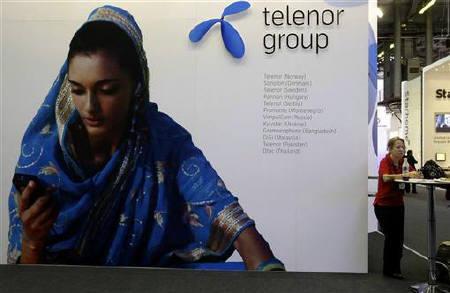
What of the subscribers to the operators whose licences have been cancelled?
It is estimated that they are not more than seven per cent of the market, but that remains a large number. Is mobile number portability sufficient recompense?
There is also the question of those companies - such as the Norwegian state operator Telenor, Abu Dhabi's Etisalat and Russia' Sistema - which invested in the licence-holding domestic companies.
While it is incumbent on the government to ensure that the investment climate is not vitiated by this decision, the Court's verdict is proof of the Indian system's commitment to a clean and clear policy environment.
It is also a lesson to businessmen that they should not cosy up to corrupt politicians to strike sweetheart deals.
It is heartening that the Court has struck directly at such crony capitalism.
Trai and the UPA have a great deal of work to do in cleaning up the mess of the past few years.
The government has been late off the blocks; Trai recommended that most of these 122 licences be cancelled some time ago, but the government held off on doing so.
The Supreme Court has done well to kick-start the process.
Click here for Rediff Realtime News!
Click NEXT to see who will gain ground...
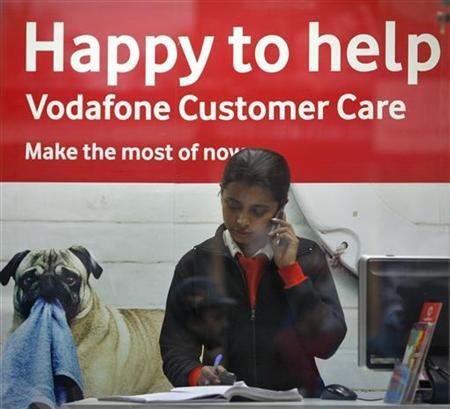
Experts feel the verdict could pave the way for a much-needed consolidation in the sector, which currently has about 16 players.
It will also enable incumbents to increase foothold.
Gartner analyst Kamlesh Bhatia predicts a shake-out in the market that would eventually lead to a consolidation.
"Generally, this happens through mergers and acquisitions or through the market regulator. In this case, the judiciary has become instrumental," he said.
There was, anyway, a need for certain measures to put the sector back on the growth mode and the Supreme Court verdict "will provide just that", he said.
KPMG analyst Romal Shetty said the judgment will "definitely help" incumbents such as Bharti and Vodafone.
"With mobile number portability facility available, subscribers will soon start shifting to the incumbent network. The brand value of these companies will attract the subscribers," he said.
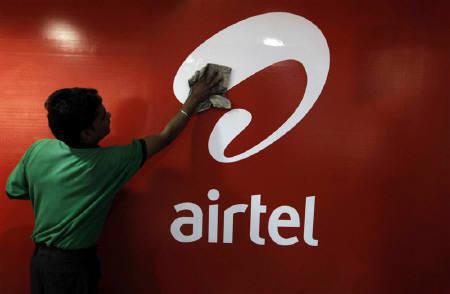
On the other hand, it will hit the new companies hard. Even so, there is a silver lining for them as well.
The auction route will enable new players to retain licences, Shetty adds.
However, many experts are also of the opinion that the tariffs may increase in the future as the incumbents are fighting under intense competitive conditions owing to low tariffs.
Last year saw some price correction - about 15-20 per cent - upwards, but it might go up further in the future since the market will now be restricted to a few players.
Thursdays' verdict has directed Trai to make fresh recommendations for the grant of licence and allocation of spectrum in the 2G band in 22 service areas by auction, as was done for allocation of spectrum in the 3G band.

The government will consider the regulator's recommendations, and take a decision within a month, following which fresh licences will be granted.
The order will jeopardise about Rs 35,000-40,000 crore (Rs 350-400 billion) that the companies have already invested.
It will, though, impact only 7.2 per cent (71 million) of the total subscriber base of 894 million in India, the second-largest wireless market by subscribers after China.
In all, eight companies have been affected - Uninor (a joint venture between Norway's Telenor and Unitech Group), Sistema Shyam (JV between Russia's Sistema and Shyam Telecom), S Tel, Videocon, Idea, Tata Teleservices, Loop Mobile and Etisalat DB (JV between the UAE's Etisalat and Swan Telecom).
Click here for Rediff Realtime News!
Click NEXT to see who's in for a bumpy ride...

With no clarity on the issue of a refund of their licence fee, the question bothering most telcos is if they have to take a substantial write-off on their capex.
Many of these companies are already considering appealing against Thursday's judgement, perhaps to the constitutional bench of the Supreme Court.
Industry sources said players like Uninor have convened a board meeting to understand the implication and decide on the future strategy.
Some of these newer foreign entities may also seek legal damages from the government or even their Indian partners as the basis of their investments was the procurement of the licence and its validity.
"There could be legal battles between joint venture partners, but it depends on the individual shareholding agreements. If the JV partner has agreed to give some guarantees and then fails to or if it's unclear as to who would bear any hike in regulatory costs," said a telecom analyst requesting anonymity.
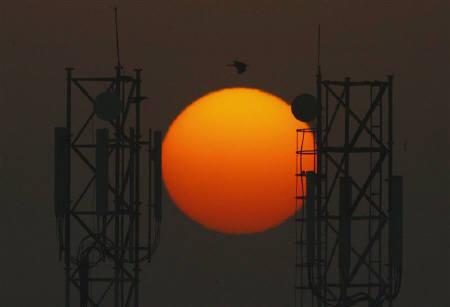
However, compared to Loop, Videocon, S Tel and Etisalat, which have not done much rollouts in the affected circles, Sistema Shyam, Uninor and Idea have been impacted the most, considering they have more at stake.
These three have already made significant investments in network rollouts, brand building and infrastructure.
While Sistema Shyam stands to lose 21 licences, for Uninor it is 22.
Both companies have been most serious and aggressive among the new operators who received licences in 2008. Uninor has 36 million customers, while Sistema has 15 million.
These make up more than half of the subscribers, among the new operators, which are under the scanner.
Both Shyam Sistema and Uninor came up with strong statements.
"The company would like to state that being a law-abiding organisation, it reserves the right to protect its interests by using all available judicial remedies," said a Sistema Shyam statement.
Sistema is part owned by the Russian government.

Telenor, the majority partner in Uninor, was equally vocal in its criticism.
"Telenor Group has already invested over Rs 6,100 crore (Rs 61 billion) in equity and over Rs 8,000 crore (Rs 80 billion) in corporate guarantees as a foreign investor that trusts a licence stamped by the government. We look to the government to arrive at a fair outcome that doesn't jeopardise our lawful investment," it said in a statement.
It added: "We urge the government to ensure that a foreign investor, that had nothing to do with these processes, is not harmed."
Most analysts said for players like Uninor, the erosion of the value of their investments in India has been mind-boggling. Will they still have enough financial muscle to go for a rebid is an open question.
"Many of these companies already have stretched balance sheets. Debt financing may not be an option from them as many banks will not lend any more. And debt is very expensive.
"So, the existing shareholders will have to infuse more equity and they may not be in a position to do so," said Arvind Subramanian, telecom analyst with Boston Consulting Group.
Click here for Rediff Realtime News!
Click NEXT to see reactions...
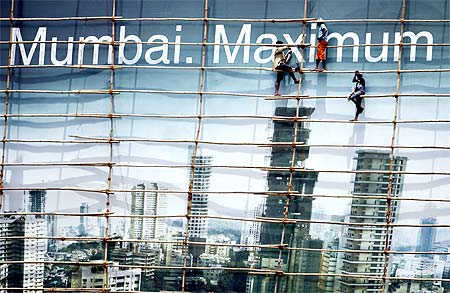
The landmark verdict means the buyer cannot keep it. While the outright cancellation of all 122 licences issued in 2008, came as a big jolt for the buyers, it also affects confidence of investors in the sector, said experts.
"This judgement will severely damage India's reputation globally. It will shake people's faith in the sanctity of any contract with the government.
"After spending billions of dollars, one fine day you are told that your licence is no longer valid, will shake even the strongest of India supporters," Shankar Sharma of First Global said.
Telenor, Etisalat, and Sistema had made sizeable investments in the Indian operations since the award of licences, said Harsh Jagnani, senior analyst, ICRA Ltd.
"The judgement would adversely impact the investor confidence in the sector, especially for foreign investors," he said.
The government agency responsible for foreign direct investment did not have much to say.
Department of Industrial Policy and Promotion secretary P K Chaudhery said: "We should respect the SC decision."

R P Singh, former secretary, Dipp, said: "As far as policy formulation is concerned, this will not give a good impression about India." But, Singh feels the independence and transparency of the judicial system will bolster confidence of investors.
Judicial remedy is what most foreign investors said they are exploring. While Sistema of MTS said it reserves its right to judicial remedies, Norway-based Telenor, which is part owner in Uninor, whose 22 licences stand cancelled, said it was a foreign investor that trusted a licence stamped by the government.
"When we have not caused any of the faults found by the courts, it is obvious to everyone that our investment must not be jeopardised," it said in a statement.
Investors and potential investors in both telecom and in other sectors are gripped by uncertainty as the court found the "first-come, first serve" policy discriminatory per se.
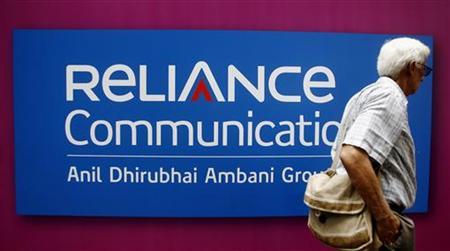
This has cast a shadow on some other sectors, including mines and minerals, where contracts have been awarded on this basis.
Among the listed firms, Idea Cellular has the highest foreign holding of 43.5 per cent. Three Mauritius based corporate bodies hold nearly 30 per cent in the company, with foreign institutional investors holding the rest. Bharti Airtel, Reliance Communication had holdings of 17. 5 per cent and eight per cent FII holdings, respectively.
While Bharti and Idea ended with gains, R-Com shares shed 3.5 per cent. The broader market also did not panic much as the Sensex ended with a gain of 131 points.
"The larger negative implications on India's attractiveness are undeniable. And not to mention that call rates may go up, which will hurt consumers across the board. What greater good is being served?" Sharma of First Global asked.
The government though put up a brave face calling the episode a new beginning. Union Telecom minister Kapil Sibal said, "The sector is crying for investment.
There is now clarity in policy and sanity in the sector. So far as foreign investment is concerned, there is huge opportunity in 3G, 4G and also 2G."
Click here for Rediff Realtime News!
Click NEXT to see legal options...

Senior lawyers of the Supreme Court see only limited legal options for these firms to pursue. The first among these is filing a review petition in the Supreme Court. For this, the companies can approach the court again, requesting it for permission to argue their case before a larger bench of the apex court.
Predictably, most affected telecom companies have refused to divulge the details of their future strategy, but said they were considering a review petition.
Also, they were exploring legal angles such as curative plea and arbitration under the bilateral investment treaty, since most companies have a substantial foreign stake. Even so, senior lawyers of the Supreme Court warn of the dangers in filing a review petition.

They sense strong grounds for the court to reject such a petition, given that the order of cancelling the licences has come from the apex court itself.
"The chances of legal recourse are very bleak. The order is, after all, the apex court's," notes senior advocate Aman Lekhi. Further, lawyers say that filing a review petition can also go against these companies.
"Today's judgement has no adverse comment against any of the companies," notes senior Supreme Court advocate K T S Tulsi. "Approaching the court again may end up drawing such comments that can affect the proceedings in the trial court," he adds.
The government, too, has the option of filing a review petition. However, this seems unlikely, as the ruling dispensation has "welcomed" the the court decision.
Lawyers say a more "prudent" option with the telecom companies will be to negotiate with the government within the four months that the court has provided. "The companies should talk to the government," says senior advocate Majeed Memon. There could be a large number of cases as a fallout of this judgement, as many parties affected by it will approach the court, he notes.

Other lawyers say companies wanting to get back their licence fee (Rs 1,000 crore {Rs 10 billion} in all, with government at this point) will have to approach the apex court individually.
This would mean another round of litigation. They also say it is likely the licence fee would be returned to the companies if the court found the loss was caused by a wrong policy of the government and not because of any individual wrongdoing by these companies.
In the reverse scenario, no money will be repaid to these companies. A senior government law officer, on condition of anonymity, says "the ball is now in the government's court".
He notes that the telecom companies, instead of approaching the court again, can either wait for the government to take a decision on the auctioning of spectrum or ask it to return their invested money.
With inputs from Mansi Taneja
Click NEXT to see impact on PE firms...

Bharti and Idea have investments from Temasek Holdings and Providence Equity Partners, respectively.
The shares of Idea went up 2.7 per cent to close at Rs 95.85 on the Bombay Stock Exchange. Bharti Airtel went up 6.9 per cent to close at Rs 385.95. In many ways, the PE rush to India started because of telecom.
Warburg Pincus had spotted Bharti in 1999 and six years later, made a billion dollars in profit, making Pulok Prasad and Rajesh Khanna the poster boys of PE.
That one investment in many ways made millions sit up and look at PE as an independent asset class for Indian markets. Subsequently, the sector had witnessed the largest PE investment by a single investor when the Singapore government-owned Temasek Holdings invested about $3 billion in Bharti Airtel in two separate deals in 2007.
That year witnessed 13 PE deals, worth $3.5 billion. In 2008, US-based PE major Providence Equity Partners had bought 16 per cent in Aditya Birla Telecom, a wholly-owned subsidiary of Idea Cellular, in a pre-IPO deal. Later, Providence diluted stake and currently holds 9.8 per cent in Idea.

Last year, ChrysCapital sold its entire 2.7 per cent stake in Idea for Rs 751 crore (Rs 7.51 billion) and TA Associates sold its five-year pre-IPO investment in Idea, both exiting completely.
However, the sector is slowly moving out of PE investors' radar.
The uncertainties over regulation made the scam-tainted sector the least considered area for such investments in India. Last year, the telecom space witnessed only six deals, worth a mere $50 million, against six deals worth $483 million in 2010.
According to Vikram Utamsingh, head-private equity advisory, KPMG India, the complete uncertainty in the sector keeps PE investors away.
He said: "PE investors prefer transparent and crystal-clear regulations in an industry where they look for investments. Also, investors are not keen for purchasing a mere two per cent stake in leading operators through a large deal."
The year 2008 had witnessed 15 deals worth $1.4 billion, according to data from VCCedge.
All the six deals in 2011 were in value-added services. According to PE investors, this segment is likely to witness more deals. Ajay Relan, founder & managing director, CX Partners and ex-Citi Venture Capital head, says: "Value added services are attractive investment targets due to the small-ticket sizes."
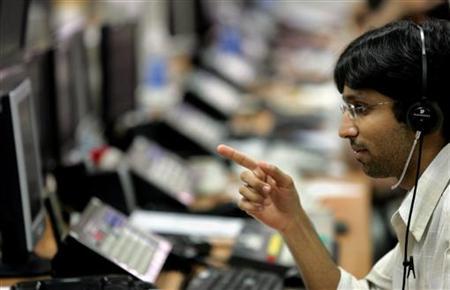
Last year, CX Partners had invested $30 million in mobile calling card service provider Matrix Cellular (Inter-national) Services Pvt. Ltd.
A managing director of a US-based PE major, which keeps away from Indian telecom space, said: "The potential of investments in voice services is almost over in India.
"Enough growth has taken place in the space and is getting saturated. Apart from the impasse, regulatory hurdles have given another roadblock for investors. We are just waiting for the opportunities in data services space and will start investing at the right time."
According to bankers, proposed deals in telecom tower space are also unlikely to happen in the near future due to the confusion.
According to reports, Reliance Communications is in negotiation with PE majors Blackstone and Carlyle to sell its tower unit in a deal worth $3 billion.
"In the current scenario where so many 2G licenses got cancelled, all investors will take a wait and watch call over the new investments," said an investment banker.
A few remain optimistic. Shyam Sundar, senior managing firector at IDFC Private Equity, said: "The only concern is about the regulations. We expect the telecom regulator can bring more clarity in three-four months over new policies, 3G services and roaming, etc. Also, the companies will be in need for capex once the bid for spectrum begins, causing big-ticket PE investments."
Click here for Rediff Realtime News!
Click NEXT to see reaction of customers...
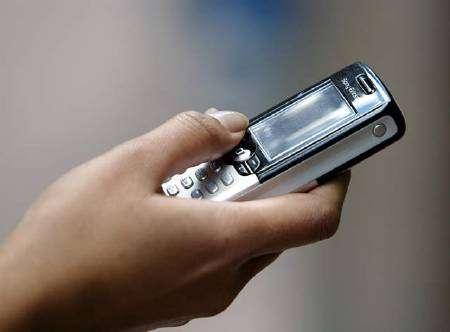
Customers across networks do not seem worried at this stage. A majority were unaware of the repercussions of the verdict.
"The time period of four months is good enough for me to choose a better service provider," said Anusha Bilgi, 23, an information technology IT engineer from Bangalore who has been using MTS for its faster connectivity and lower rates.
In Karnataka, Uninor, MTS and Docomo were gaining customers rapidly, though Airtel rules the market. New entrants like Videocon and Etisalat have a negligible presence. The customers of Uninor, MTS and Idea were a little disappointed because they feel they may have to pay more for the services of other networks.
These companies are popular among young subscribers because of the faster data transfer and lower call charges offered by them. While Idea offers the lowest rate for STD calls, Uninor offers the lowest local call fee and MTS offers a faster data transfer facility.
Ram Ratan, 60, an agriculturist from Gorakhpur, said he'd opted for Uninor as he found their rates to be cheaper than others. He said he'd retain his number for the time being. Ranjit Singh Yadav, 21, a businessman from Barabanki, said he'd retain his MTS connection.
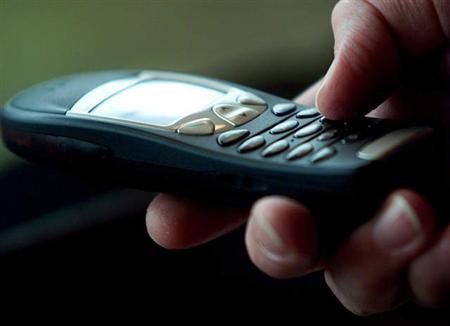
"As of now, I am not going to change. All of a sudden, I saw on TV that Idea will shut shop. I will have no option but to shift to another service provider at the earliest. I don't think that will happen immediately though," said Rushab Sheoran, a musician, and an Idea subscriber from Kolkata.
Madhusudan, 44, a public relations officer of the Uttarakhand chief minister who has been using Idea mobile services for four years, does not want to change his provider unless there are issues involved with the rates.
"Despite all the news about the verdict cancelling licences, I am perfectly okay with Idea," he said.
Some of the customers said they would not change immediately. They plan to wait and watch how things evolve in the next four months.
"I might think of quitting Tata Teleservices, based on how this pans out in the long run, but I will try out a provider that gives me better options with Blackberry services. I won't immediately quit and will also look at how much other services will cost me," said an Assam-based user.
However, customers not satisfied with existing operators said they'd like to change their networks immediately, using MNP.

A good number of common customers like auto, taxi drivers, carpenters, masons, traders and students were unaware of the judgment in Kerala, where Uninor and MTS have the least number of customers. Sadath, a Uninor customer, said if the services of the company were to be stalled, he would migrate to the BSNL network.
For 11th standard student Siddharth Shah, the idea of availing 2,000 minutes free with his 15-odd friends lured him to subscribe to Uninor.
"This way, I am able to be in touch with all my friends who have also subscribed to Uninor. Plus, it tends to be cheaper than other telecom operators. There is no way that we would switch over to any other operator," says the 17-year-old student of Sharda Higher Secondary School in Ahmedabad.
Of 11 companies hit by the court order, three - Uninor, Idea and S Tel - have operations in Orissa.
The customers had mostly subscribed to their services to avail cheaper call rates compared to other players in the state such as Airtel, Vodafone and Reliance. They said any changes in rates would certainly affect their loyalty.
"I use my Uninor number only to make longer duration calls, which are cheaper. So if the Supreme Court decision would affect the call tariffs (rates), then I will certainly switch to another service provider," said Sudarshan Sahu, 30, a driver in Bhubaneswar, who uses Uninor as his secondary number.